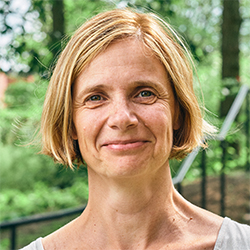Sensor technology finds leaks and tracks contaminants in drinking water

Leaks from pipes in water supply networks cause significant losses of drinking water. Pipe leaks are often difficult to locate, and KTH researchers are developing sensor technology that would make it possible to locate leaks and stop contamination faster.
"The goal is to reduce resource waste," says KTH Professor Viktoria Fodor, leader of the research project “Decision-making in Critical Societal Infrastructures”.
She says in cities' complex water distribution networks it is often difficult to determine what has happened in the pipes when leaks occur or water quality deteriorates.

By combining sensor data, mathematical models and machine learning, a team of researchers is now mapping the water’s pathways, with the goal of reducing drinking water losses and quickly stopping the spread of contaminated drinking water.
"Water is a critical societal resource that must be protected against both physical and cyber threats, so the monitoring of water systems needs to be strengthened," Fodor says. She is research leader of the Digital Futures-project “Decision-making in Critical Societal Infrastructures".
The researchers want to answer two questions: “In which specific pipe in the water system has the leakage occurred that causes the water loss?” And “How does the pollution spread and where does it come from?”.
Water loss is a hot
topic internationally
. According to the
OECD
's
calculations
from 2017, around 18 percent of Sweden's drinking water disappears on the way from source to consumer.
About
30 percent of treated water is lost worldwide
due to leakages in public water systems.
“In Stockholm, we are seeing major problems caused by the city's outdated water system . Our results show that by installing sensors in a few easily accessible places in the water network, and by using smart meters in the households, many of the problems can be detected quickly and accurately, Fodor says.
Thanks to the project's basic technology, which is based on 'big data', the researchers hope to offer municipalities more opportunities for cooperation in the future.
“We can hopefully help solve more problems than water leaks. For example, more efficient water drainage is needed for flooding, which is becoming more common with heavy rainfall and extreme weather.”
Katarina Ahlfort (
ahlfort@kth.se
)
Photo: KTH/Jan Kansanen, Mostphotos
